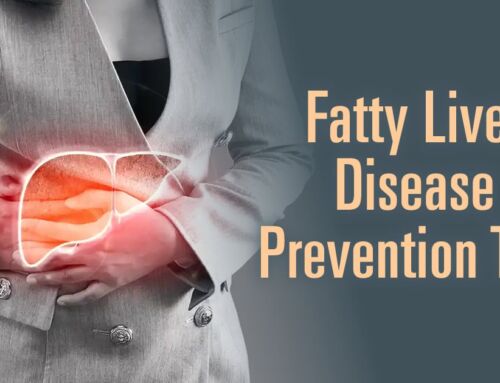If you’ve been feeling down – or run-down – for a while now, you may be looking for answers. While I would always urge you to consult your doctor first and foremost, if you’re having a hard time, and digestive discomfort is playing a part, improving gut health may be one of the ways in which you can make a difference.
Do you feel:
- Tired?
- Depressed?
- Like you always have brain fog?
- That you spend a lot of time evacuating your bowels?
- Unable to sleep?
- Like your gut is constantly churning?
- Unable to concentrate?
The gut-brain connection is a big topic to tackle in one article. My intention is to provide an overview and introduce how your gut health plays an important role in our overall health. Believe me, it’s not all in your head! Your gut and indigestion play a valuable role in mood, cognitive function, and the way you process emotions.
NOTE: I offer 4 tips at the end of the article to help naturally boost your brain through your gut. Just want to entice you to read to the end of the article!
-Russell Havranek, MD
Why Is the Gut Referred to as the Second Brain?
One of the most fascinating aspects of your body is the way in which it connects together. On the face of it, your gut and your brain appear to be unrelated – other than the fact that your gut digests the nutrients that you brain needs to thrive. But what would you think if I told you that your gut walls contain neural tissue and neurotransmitters that make 95% of your serotonin – and that your gut and brain are in constant communication through the vagus nerve?
The vagus nerve is a major conduit of information, and the longest cranial nerve in your body – and it signals different functions in the body, including the gut movement that aids digestion. But the vagus nerve isn’t a one-way system – your gut uses it to transmit information up to the brain!
Scientists have been exploring the ramifications of this feedback loop, known as the Enteric Nervous System (ENS), or gut-brain connection. Interestingly, the third player in the ENS is your gut microbiome. You’ve probably heard of your gut microbiome before – there’s been a lot of media emphasis on its emerging importance. Your microbiome is made up of dense colonies of bacteria that live in your gut – the majority of which live in your upper colon. When balanced, these bacteria are beneficial, aiding you in processing food you can’t digest, such as fiber, and creating enzyme byproducts that aid the break-down of your food. The bacteria are your friends!
Your microbiome is especially clever in that it uses the ENS to communicate with your brain – sometimes sneakily pushing a food craving on you! Your gut microbiome and ENS work together to create a sophisticated feedback network sensitive to changes in diet and stress.
How Does Leaky Gut Cause Inflammation in the Brain?
Leaky gut, also known as increased intestinal permeability, occurs when your intestinal wall no longer works well. Normally, your intestinal wall is excellent at filtering through water and nutrients into your bloodstream – and keeping large food debris and waste products from passing through. But when leaky gut occurs, this careful gatekeeping is disrupted when the gaps in your intestinal wall widen – and large food particles, bacteria, and toxins also enter your bloodstream.
The result? Your immune system is called into action again and again: basically, whenever you’re digesting food, which – if you’re eating three square meals a day – is most of the time! Your immune system works hard to neutralize the threat of the toxins and other irritants, and little chemical messengers called cytokines flood your body. Cytokines promote inflammation.
Things get even trickier for your body when lipopolysaccharides (LPS) pass through your intestinal wall. LPS are large molecules created when the bacterial cell wall sheds, and are a known inflammatory contributing to Inflammatory Bowel Disease – Ulcerative Colitis & Crohn’s Disease. LPS have been known to cross the blood-brain barrier, causing a neuro inflammatory response, and have been linked with Alzheimer’s disease.
How Does Your Gut Contribute to Free Radicals in the Brain?
A free radical is an uncharged molecule, which means they are short-lived, but highly reactive. Your body creates them as byproducts of oxygen metabolism as you breathe. On a cellular level, they’re created when your cells need to neutralize bacteria and viruses. The endothelial cells that line your gut create free radicals from fried foods, processed or cooked meats, and alcohol.
When free radicals are unleashed, they cause oxidative stress, and damage to cells and tissues – a strong contributor to the inflammation that causes Inflammatory Bowel Disease (IBD). Free radicals can also journey to your brain, causing oxidative stress, and contributing to neurodegenerative diseases such as Alzheimer’s disease and dementia.
The good news is that you can beat this damage by embracing food rich in antioxidants – nature’s gift to us in fighting free radicals!
Good sources of antioxidants include:
- Berries
- Good quality dark chocolate
- Unprocessed tea
- Herbs and spices
To achieve a balance, it’s best to eat foods that contribute to free radicals sparingly, but to include antioxidants in your diet where you can.
How Does Your Gut Affect Your Mood and Chronic Health Conditions?
When your gut microbiome is well-balanced and healthy, you may take it for granted. When it’s imbalanced, or fed the wrong food – like processed sugar – it can have a detrimental effect not only on your digestive system, but also on your mood! The microbiome may be made up of millions of tiny single-celled bacteria, but working together, the colonies of bacteria are quite smart – harnessing the power of the ENS to create a two-way relationship with your brain.
Your gut microbiome also has a hand in your overall health, including:
- Weight gain and the risk of obesity
- Strength of the gut wall barrier and quality of nutrient absorption
- Energy intake
- Risk factors associated with cardiovascular disease
- Appetite
- Glucose regulation
- Immune function
- Recovery after strenuous exercise
Interestingly, the effect isn’t all one way. While your gut microbiome has a great effect on your stamina and health, by upping your exercise, you can improve your gut microbiome!
Your gut is responsible for making 90% of the serotonin in your body – a complex, powerful neurotransmitter, in charge of more than just feelings of well-being – its role in maintaining memory, sleep, appetite, libido, and blood flow is also significant.
Inadequate levels of serotonin can cause:
- Low moods
- Poor sleep
- Headaches
- Migraines
- Irritable bowel syndrome
Your gut health can also affect existing chronic conditions:
Allergies
Alterations in your gut microbiome from an early age can result in allergies – often grown out of, but a disrupted microbiome can result in food allergies or sensitivity – skin or respiratory allergies also!
Asthma
Leading on from the last point, an unhealthy gut microbiome can contribute to asthma, due to an imbalance in microbes, and often a higher occurrence of candida.
Type 2 diabetes
Type 2 diabetes has links with lowered numbers of butyrate‐producing microbes in the gut, along with increased Lactobacillus. An imbalanced gut microbiome is a contributor to type 2 diabetes, and so it stands to reason that a healthy gut may promote improvement in your condition, combined with a healthier diet and exercise.
Dementia
An imbalanced gut microbiome has been linked to dementia – particularly Alzheimer’s disease – through inciting inflammation and creating amyloids.
ADHD
Diet can have an effect on the symptoms of ADHD, and there is increasing evidence that a compromised gut microbiome has a hand in the development of the neuro developmental disorder.
Cancer
A poorly functioning microbiome is linked with inflammation – a known carcinogenic risk factor – and has been linked with lymphoma, breast cancer, pancreatic cancer, prostate cancer, ovarian cancer, and bowel cancer.
While it’s easy to take your gut and digestion for granted, it’s essential that you look after your microbiome and gut for optimal health.
4 Ways to Boost Your Brain Through Your Gut
Fortunately, there are a few ways you can improve your health – and enhance brain function – through your gut.
- Eat a low carbohydrate diet – Sugar is a known inflammatory, and, in turn, it is a major contributor to gut microbiome imbalances – feeding the wrong types of bacteria, often contributing to brain fog. Furthermore, eating fewer carbs, and eating healthy fats can help improve brain cognition.
- Consume foods rich in prebiotics – You’ve heard of probiotics, but prebiotics are pure microbiome food, rich in the fiber they enjoy, which helps promote a healthy gut. Foods rich in prebiotics include: mushrooms, tomatoes, artichokes, bananas, asparagus, berries, garlic, onions, chicory, green vegetables, and legumes.
- Eat dark chocolate – Not just any dark chocolate: the percentage of cocoa content must be high. Good quality dark chocolate contains flavonoids which increase blood flow in the brain and promote brain connectivity and neuronal function. Amazing!
- Consume foods rich in probiotics – By eating these foods rich in helpful bacteria you can make a direct improvement to the integrity of your gut lining, helping you avoid leaky gut, alongside controlling inflammation, and keeping your immune system working well. Probiotics work as natural antibiotics, antivirals, and antifungals, helping balance your gut microbiome and, crucially, modulating your gut-brain axis, potentially improving your mood. Good examples of probiotic foods include natural yogurt, kefir, sauerkraut, and kombucha. I encourage you to read my article on probiotics to learn more about them and my recommendations.
Concerned about your gut health? If you’re in the San Antonio, TX area and looking for a board certified gastroenterologist click to request an appointment or call our office at (210) 615-8308.
Image: health.harvard.edu






